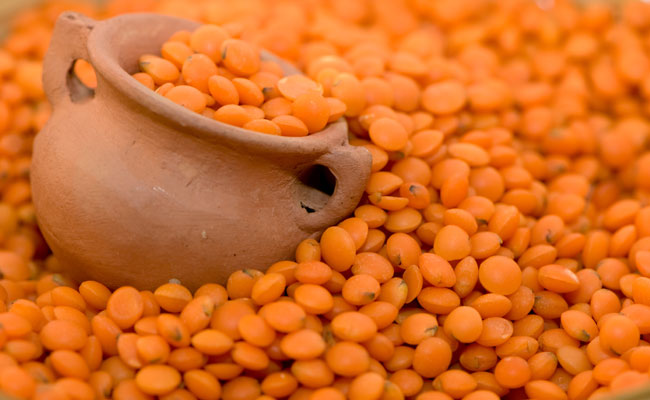
Imports of pulses to rise in FY2015-16
Aadhira Anandh | The Dollar Business
The Government of India is planning to import pulses through state-owned trading enterprises as output is expected to be lower this year while demand is growing. According to trade sources, retail prices of pulses across the country have already risen by up to 70% in the last 12 months and might end up the hitting the highest level in the last two years. "Increase in prices of pulses may register highest growth this year as unseasonal rains in north and central India have damaged the Rabi crop and widened the gap between demand and supply to the extent of 6 MT," says an Assocham study. Industry sources estimate kharif pulses production at 5.3 MT and rabi pulses at 12.2 MT which add up to 17.5 MT for FY2014-15 as against 19.7 MT in FY2013-14, resulting in a decline of 2.2 MT over last year. Unseasonal rains in key pulses producing states of Madhya Pradesh (also the largest pulses producer in the country) and Rajasthan have affected the output and prices of pulses to a large extent. The wholesale price index for pulses is currently at a two year high – in April 2015, wholesale price index for pulse stood at 264.1 - and is expected to only move northwards. Although the government has taken several steps to boost the production of pulses in the country, achieving self-sufficiency in pulses remains a distant dream. “As against recommended daily requirement of 50-60 grams, current availability of pulses is less than 30 grams per day,” states the Assocham report. The industry too believes that this is perhaps the only way to resolve the crisis. “The government’s plan to import pulses is really logical. We had a very bad crop last year and as such the production of pulses has gone down substantially, making it difficult for us to meet the domestic demand,” Pradeep Ghorpade, CEO, India Pulses and Grains Association, tells The Dollar Business. India usually imports about 3-4 MT of pulses every year to meet an annual domestic demand (the import of the pulses stood at 3 MT in FY2014) of about 22-23 MT. However, the import this year is estimated to cross the 4.5 MT mark. Talking on price stabilisation, Ghorpade said “Prices of pulses might perhaps stabilise sometime in August this year, when the new stocks hits the market.” Meanwhile, global prices have already moved up by an average of 15-20% in the last few months and are further firming up in anticipation of India's rising import needs. .
June 04, 2015 | 04:51 pm IST.






 to success.
to success.